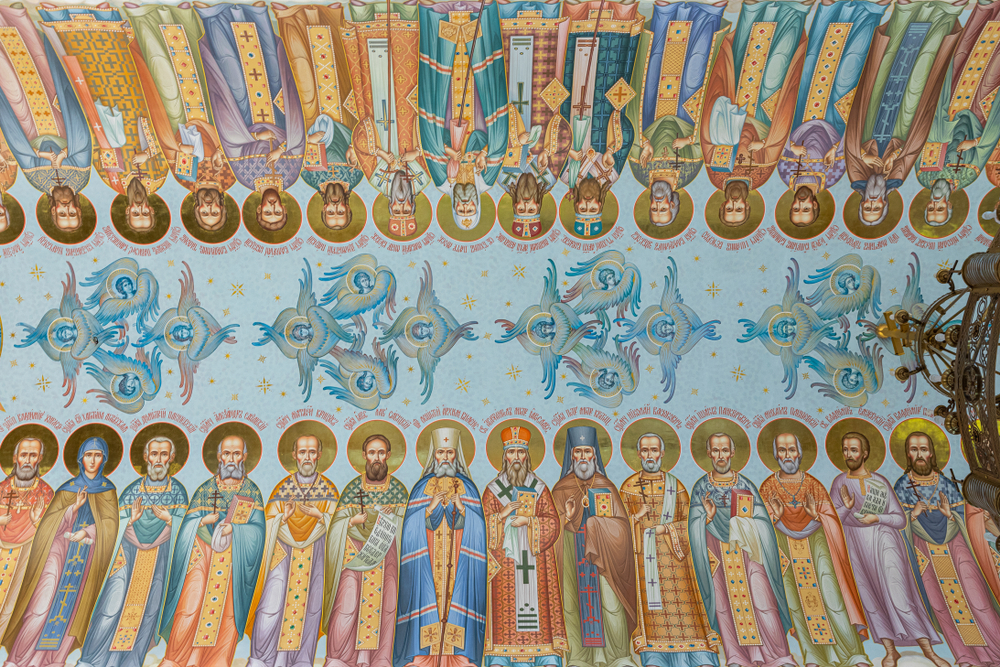As a priest and now as a bishop, one of my great joys is baptizing infants and getting to know and minister to young families.
Every mother and father knows that as their children grow, they learn through imitation. By watching what’s going on around them, especially their parents, they learn not only how to behave, but also what’s important.
Adults are “formed” in much the same way.
Often our attitudes and desires — what we think about, what we value, what we want to wear or watch or own — are suggested to us by “role models” in our lives or in the culture. These days, sometimes they’re called “influencers.”
Jesus knew this about us. As the Gospel says, Jesus didn’t need anyone to tell him about human nature, he understood it well.
That’s why Jesus presented himself — his words and example — as the “way” for our lives, calling us to follow him, and to learn from him.
At the Last Supper, when he washed the apostles’ feet, he said: “I have given you a model to follow, so that as I have done for you, you should also do.”
These words could be applied to his whole life.
Jesus’ apostles taught as he did. St. Paul used to say, “Be imitators of me, as I am of Christ.” For centuries, the most widely read and translated spiritual book besides the Bible has been a 15th-century work called “The Imitation of Christ.”
The meaning of our lives is to be like Jesus. And the Church has always held up the saints as “influencers” to guide us. Again, as every parent knows, if children are going to grow up right, they need to keep good company and have good examples to follow.
Sometimes we can think that the saints were perfect people, who never had any problems or doubts. But that’s not accurate. In fact, when you read their lives, you find that many were complicated individuals with strong personalities.
The truth is that the saints are no different than you and me. Like us, they are sinners still, ordinary people with their own shortcomings, blind spots, and weaknesses.
One of my New Year’s resolutions is to do more “saint watching.” I want to spend more time praying and reflecting on the lives of the saints, especially the holy men and women of the Americas and the saints who lived in our times.
I want to know their stories, their struggles, what they lived for, and how. Most of all, I want to learn how I can become more like them. St. Bernard once said in a homily, “I tell you: when I think of the saints, I feel myself inflamed by a tremendous yearning.”
The saints speak to the yearnings we all have in our hearts — for love, for meaning, and happiness.
There is a lot of talk these days in our popular culture about “self-care” and becoming “our best selves.” Watching the saints we see what Jesus would say if we asked him how to live life to its fullest.
The saints teach us that the best way to care for ourselves is to care for others, and that we find happiness when we seek God’s will for our lives, not our own. To be our best selves means being the men and women who God created us to be, it means becoming saints.
Saints are not perfect but they want to be. We can learn from watching them how to struggle with our own imperfections, how not to lose heart or be discouraged by difficulties; we can learn how to pick ourselves up when we make mistakes, and how to keep growing in holiness more and more each day.
The path to becoming saints is found in our ordinary lives. And there are saints all around us. I meet them all the time, although they would hardly consider themselves saints.
What we learn from watching the saints is that there is a quiet heroism in trying to live the Gospel every day.
Keeping calm in a tense moment, being generous with your time, being patient with someone who upsets you; forgiving the little offenses you might feel; making sacrifices and denying your own needs to serve others. These are heroic acts, the works of everyday saints.
Pray for me and I will pray for you.
And as we begin this new year, let us ask the intercession of Holy Mary, Queen of the Saints. May she help us to really want to be saints and to turn to the example of the saints to learn how.

